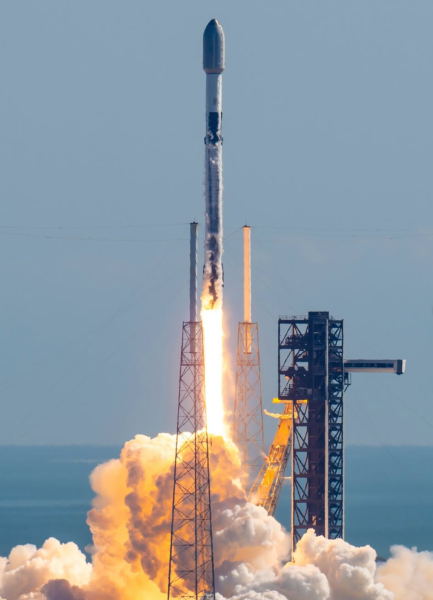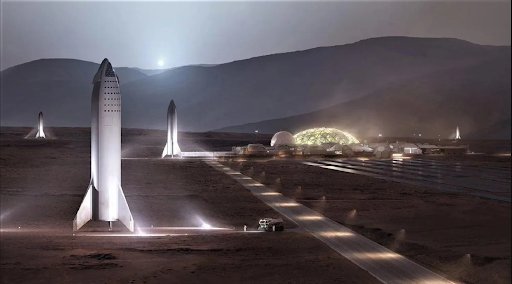Forebodings about Earth’s impending doom are neither new nor surprising. Humanity has long dealt with concerns about our planet’s gradual destruction, from ancient prophecies to modern scientific predictions. Today, these fears are no longer confined to fiction.
Nick Bostrom, director of Oxford University’s Future of Humanity Institute, has compiled a sobering catalogue of existential risks that could wipe out humanity entirely. These range from nuclear war and rogue nanotechnology to resource exhaustion and large-scale ecological collapse driven by climate change. One way or another, it’s conceivable that Earth has an end date.
In response, a growing number of Silicon Valley billionaires have proposed a radical solution to the ominous future: leaving. Specifically, it’s the colonization of Mars, a so-called “Exodus”.
Currently, the most prominent advocate for space exploration is Elon Musk. The multi-billion-dollar generating CEO aims to have a city of a million people on Mars by 2050. His core value lies in the concept that scattering human colonies outside Earth would ensure long-term survival for our species in case Earth encounters an existential risk that wipes out the whole population. Inspired by the 1950 sci-fi novel “Foundation,” which involves a protagonist who predicts the fall of a galactic empire and sets up a foundation to prevent a dark age. They find a planet remote from the galactic center, where they preserve human knowledge and civilization while the center of the galaxy falls apart.

Image: @spacex on Instagram
Indubitably, these achievements are groundbreaking within the realm of scientific advancement. However, the multimillion-dollar-funded ambition is also met with significant and reasonable skepticism. His excessively zealous plan only seems feasible when factual criticisms are disregarded. Furthermore, Musk’s proposed “exodus” is an unrealistic venture that merely diverts attention from urgent issues on Earth, raising ethical questions surrounding planetary stewardship: whether prioritizing extraterrestrial ambitions over pressing global challenges is justified.
To begin with, the future of space expansion doesn’t seem as optimistic as Musk claims it to be. As mentioned earlier, Musk aims to occupy Mars with a city of a million people by 2050, yet this plan has rather been met with uncertainty. In essence, reaching Mars is a viable plan; China plans to send human crews to Mars by 2033, while NASA aims to send astronauts to Mars by the late 2030s or early 2040s.
In reality, it’s another concern that raises skepticism: whether life on Mars can emulate the comfort, or even the livability, of Earth. Many argue that Mars’ natural conditions are fundamentally unsuitable for human living requirements. Its atmosphere consists of 95% carbon dioxide with an average temperature of around minus 80 degrees Fahrenheit, and the surface is bombarded with harmful radiation. Adding to this environmental challenge is the sheer distance from Earth to Mars, which takes about 8.5 months. This vast separation not only complicates communication but also severely hinders the ability to transport basic living necessities and medical support, making the initial establishment of a truly self-sufficient colony extremely difficult. Even if technological advances manage to address some of Mars’ hostile conditions, its remoteness poses an enduring obstacle to any sustainable human settlement.

Image: SpaceX
Compounding the technological issues, ethical questions remain unaddressed. To state the obvious, space exploration requires an astronomical budget. In 2023, the yearly global government expenditure for space exploration hit a record of a whopping 117 billion US dollars, with 26 billion of that being NASA’s. In a world where poverty and climate change remain pressing issues, critics argue that this monumental amount of money is being misallocated.
The U.N.’s Food and Agriculture Organization (FAO) estimates that annual investments of 39 billion to 50 billion dollars would be required to achieve a world without hunger by 2030. This investment postulate addresses the needs of 2.3 billion people facing moderate to severe food insecurity. Climate change is also an urgent issue accompanied by a massive price tag. According to the United Nations Environment Programme (UNEP), developing countries alone will need up to 387 billion dollars every year by 2030 just to adapt to the effects of climate change and reduce future damage. In 2021, only $21 billion was delivered in closing the gap. Thus, even redirecting a portion of the space budget could double or triple the current amount of adaptation funding. This includes building stronger infrastructure to withstand extreme weather, creating early warning systems, supporting farmers whose crops are failing due to droughts, and shifting to cleaner sources of energy. Without this kind of support, millions of lives will remain at risk. When such immediate and widespread issues persist on Earth, investing billions in space missions appears severely out of touch.
“You want to wake up in the morning and think the future is going to be great – and that’s what being a spacefaring civilization is all about,” Musk claims on the SpaceX website. “It’s about believing in the future and thinking that the future will be better than the past. And I can’t think of anything more exciting than going out there and being among the stars.” However, Musk’s fixation on the future spurs the overlooking of pressing needs of the present. A further ideal future doesn’t promise us an opportunity to leap over the problems of today–it means we must confront them.
Before Musk’s space colonization is officially launched, it’s urgent to address the current pressing issues on Earth. If not, Musk’s ambitious multi-planetary vision will merely manifest as a reflection of his escape mentality. His over-optimism poses a distraction from Earth’s dire problems while discouraging hope for Earth’s recovery and hopelessly labeling it as a lost cause. Rather than escaping into space, the brighter future lies in restoring the balance on Earth: where change is most urgently needed and still within reach.

























































